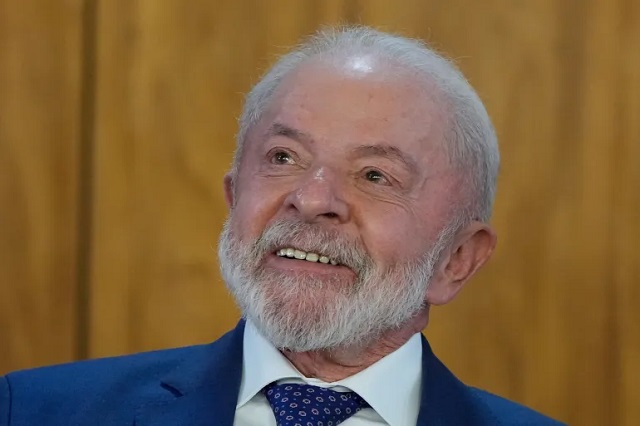Brazil has unveiled an ambitious economic relief package designed to shield local exporters from the impact of sweeping U.S. tariffs. On August 13, 2025, President Luiz Inácio Lula da Silva announced the “Sovereign Brazil” plan, a program worth 30 billion reais ($5.5 billion), to immediately support industries hit hardest by Washington’s decision to impose a 50% tariff on Brazilian goods.
Speaking at the Planalto presidential palace in Brasília, Lula framed the initiative as both a defensive measure and a signal of resilience. “We cannot be scared, nervous and anxious when there is a crisis,” he said. “A crisis is for us to create new things.”
A Financial Lifeline for Exporters
At the heart of the program is a credit line of 30 billion reais, made available through Brazil’s Export Guarantee Fund and development bank BNDES. The funds are aimed at ensuring exporters can maintain liquidity and avoid disruption in supply chains as U.S. tariffs squeeze profit margins.
Also Read: “Price Pressure Is Inevitable—Only Unity Can Help Us Face the 20% U.S. Duty”
In addition, the plan postpones certain tax charges and creates 5 billion reais in tax credits to aid small and medium-sized businesses through 2026. These measures are intended to buy time for struggling firms, particularly those dependent on U.S. markets.
Insurance and Market Protection
To protect exporters from sudden shocks, the plan expands insurance coverage for canceled orders. This will allow businesses to recover losses when buyers back out due to higher costs. Another measure incentivizes public procurement, with the Brazilian government committing to purchase goods that would otherwise have gone to U.S. buyers, redirecting them to hospitals, schools, and public programs.
Temporary Relief, Pending Congress
While the measures take immediate effect, they are temporary—set to last only four months unless Congress passes additional legislation. Congressional leaders attended the announcement ceremony, signaling rare political unity behind the plan. Analysts say this alignment could pave the way for swift approval of an extension.
Industry and Business Reactions
The business community cautiously welcomed the plan. Ricardo Alban, president of the Brazilian Industry Confederation, described the initiative as “palliative, but necessary,” reflecting both relief and concern.
Also Read: AmCham Chief Urges Bilateral Deal as US Tariff Decision Looms
The beef industry, one of Brazil’s biggest exporters, is among the hardest hit. The head of the beef exporters’ association warned that the tariffs make shipping to the U.S. “economically unfeasible.” The U.S. remains one of Brazil’s top destinations for agricultural exports, and the sudden tariff hike has sent shockwaves across the sector.
The Political Undercurrent
The tariffs are not purely economic. U.S. President Donald Trump directly linked them to the legal troubles of former Brazilian President Jair Bolsonaro, who remains under house arrest for allegedly attempting to orchestrate a coup after losing the 2022 election.
The White House accused Lula’s administration of engaging in “politically motivated persecution” of Bolsonaro and his supporters, framing it as a human rights concern. Brazil strongly rejected these claims, calling the sanctions “baseless and politically motivated.”
Brazil’s Wider Strategy
Rather than escalate, Lula has opted for diplomacy. His government has filed complaints at the World Trade Organization (WTO) and is working to deepen trade ties with other partners, including the European Union, BRICS nations, and Asian markets. At the same time, Lula urged Brazil’s allies to consider a coordinated response within BRICS to counterbalance Washington’s trade pressure.
A Moment of Crisis and Opportunity
For Lula, the “Sovereign Brazil” plan is more than an economic shield—it is a political statement of independence. By moving swiftly with financial relief and showing unity with Congress, his government is attempting to turn a crisis into an opportunity to strengthen Brazil’s domestic resilience and global negotiating position.
Whether the plan will be enough to offset the severe impact of U.S. tariffs remains uncertain, but it marks a decisive moment in Brazil’s trade and diplomatic strategy.
Credit Note
This report is an original summary written in journalistic style, based on publicly available information from AP News, Reuters, Al Jazeera, ICIS, and the Financial Times published on August 13–14, 2025. Direct quotes and factual details belong to their respective sources.






